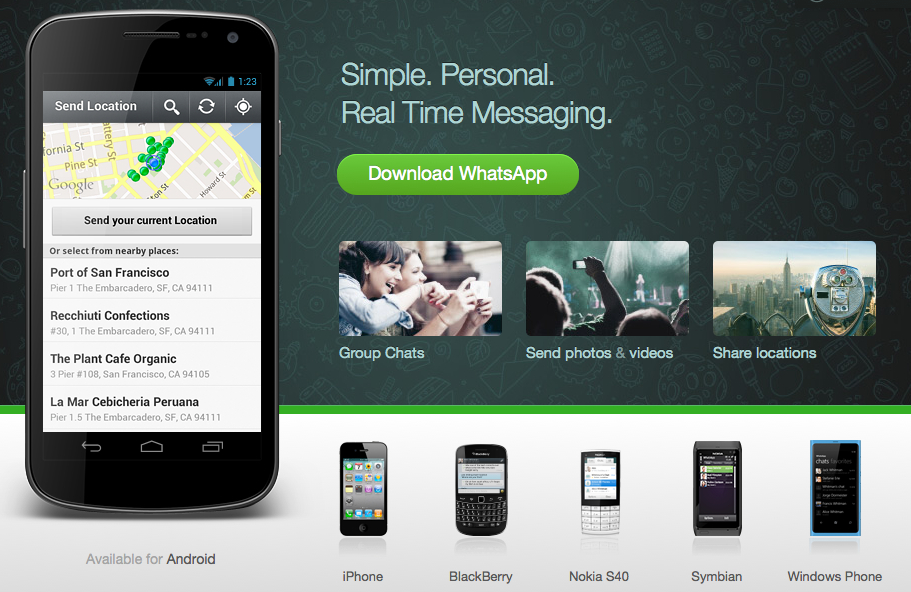E-learning for journalists: free courses and webinars
 MOOCs, massive open online courses, help journalists all over the world improve their skills and learn from the best without leaving their computer desk. That’s a great opportunity, especially for reporters from developing countries. In this post, we’ll explain how e-learning has evolved and where you can find free journalism-related courses.
MOOCs, massive open online courses, help journalists all over the world improve their skills and learn from the best without leaving their computer desk. That’s a great opportunity, especially for reporters from developing countries. In this post, we’ll explain how e-learning has evolved and where you can find free journalism-related courses.
E-learning has been around for several years. Many universities offer their lectures and study plans online. For example, e-learning platform edX offers free courses from several universities, however, the courses are not that numerous and are mostly technical. Harvard Open Courses offers courses on journalism, but the enrollment process is lengthy and, moreover, there’s a tuition fee, which means the courses are not really for the masses. Berkeley University,Yale University and Massachusets Institute of Technology also put their courses online, which are basically recorded class sessions.
Stanford University is doing something different by offering customized online sessions via the iTunes, but there’s still a heavy element of lecturing and no interaction with the instructor and other students.
These are all great opportunities for journalists to learn more about their profession without having to attend whole courses. But watching or listening to recorded classroom presentations is a rather one dimensional model.
![]() read more
read more
Using WhatsApp for multimedia and mobile journalism training
Be creative, experiment and learn through play.
This is something I’m always trying to encourage participants to do during any workshop. But particularly when it comes to learning about multimedia, or using a mobile phone for reporting, and getting used to new types of media for storytelling.
So what’s up with using the mobile messaging service WhatsApp as a tool to complement training in workshops? Well, potentially a lot… particularly for practical exercises. But first, if you haven’t yet dialled into the world of WhatsApp, here’s a quick overview.
![]() read more
read more
Make journalism training multiskilled
 Digital technologies are completely changing the face of journalism. This transformation presents new challenges for training journalists because it’s no longer practicable for upcoming reporters to only have skills in a single medium.
Digital technologies are completely changing the face of journalism. This transformation presents new challenges for training journalists because it’s no longer practicable for upcoming reporters to only have skills in a single medium.
Instead, during their training, journalists need to be exposed to diverse narrative forms and modes of representation used in all media, from radio and television to print and online.
![]() read more
read more
Training mobile journalism – more than just apps (Part 2)
In the previous blog post on training mobile journalism, freelance trainer Guy Degen discussed smartphones and operating systems, useful free apps for training courses and managing installation of apps for trainees.
 This blog post will look at some basic phone settings trainees should know, what to think about when developing a workflow for producing multimedia content with a mobile phone; editing and managing content produced by trainees in the field, tips for mobile journalism training assignments and some useful accessories for training.
This blog post will look at some basic phone settings trainees should know, what to think about when developing a workflow for producing multimedia content with a mobile phone; editing and managing content produced by trainees in the field, tips for mobile journalism training assignments and some useful accessories for training.
![]() read more
read more
Training mobile journalism – more than just apps (Part 1)
Using a mobile phone effectively for reporting is becoming more established in newsrooms.
And along with the ever increasing range of applications, journalism training and media development agencies are turning their attention to offering mobile journalism courses and mobile content producing courses for citizen media.
This is positive. But there are plenty of traps along the way in offering mojo training.
Here on the DW Akademie Africa blog, we’re always keen to explore multimedia apps and innovative ways journalists can use a mobile phone for their work.
In the first of two blog posts, we’ll take a look at some points journalism trainers should consider when setting out to develop mobile journalism courses.
![]() read more
read more









Feedback